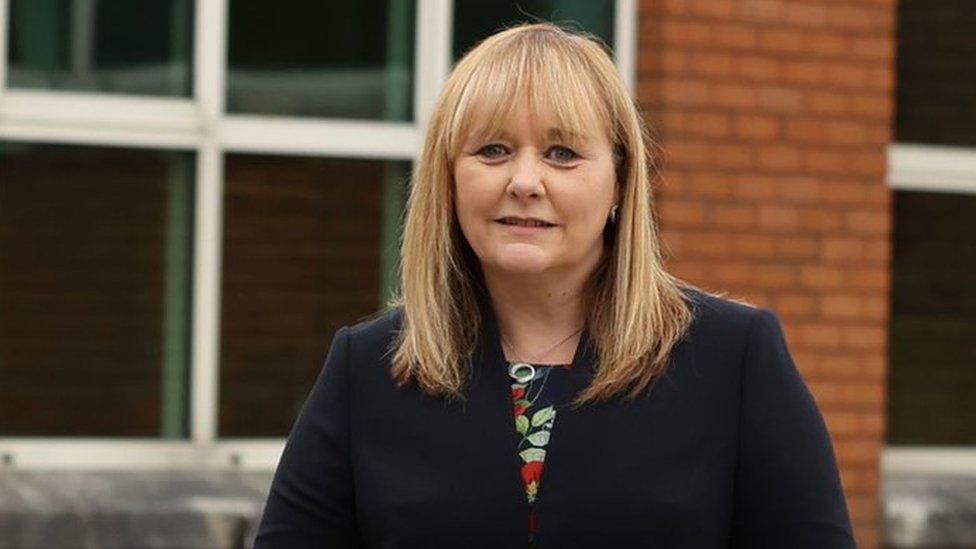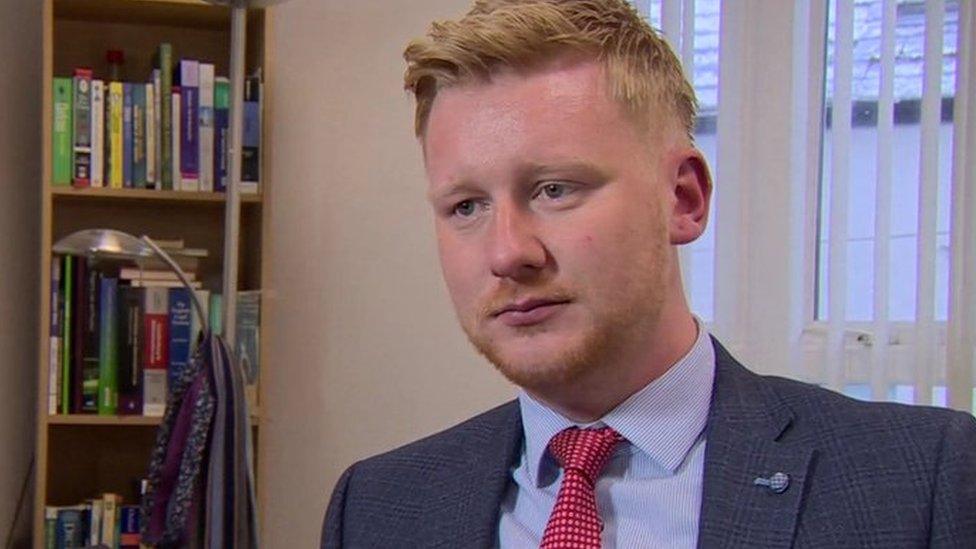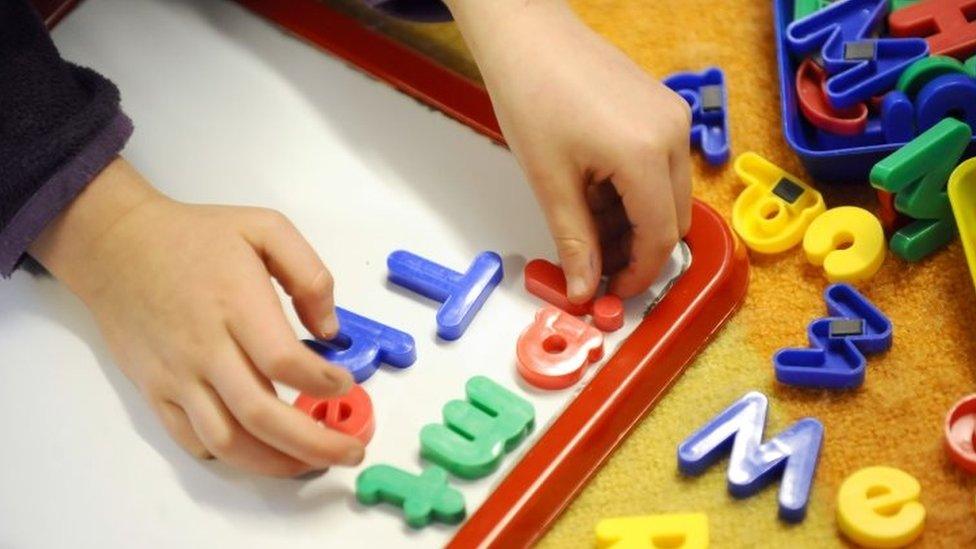Pre-school education plans for Northern Ireland 'do not go far enough'
- Published

About 60% of children in Northern Ireland currently get 12.5 hours of funded pre-school education a week
There has been political disagreement over a plan to increase pre-school education for many children in Northern Ireland.
Education Minister Michelle McIlveen has announced proposals for all three and four-year-olds to get a minimum of 22.5 hours in pre-school each week.
About 60% of children in Northern Ireland currently get 12.5 hours of funded pre-school education a week.
The SDLP's Daniel McCrossan has said that the plans do not go far enough.
He said families should be offered 30 hours of free childcare a week instead.
The Department of Education (DE) currently offers all children aged three and four in Northern Ireland a funded place in pre-school during term time.
In 2021-22, there were almost 23,000 pupils in pre-school and more than nine in every 10 (91%) three-year-olds took up a place.
They attend nursery schools, reception classes in primary schools or voluntary nurseries or day care.
However, the time children can spend in pre-school varies - about 60% spend 12.5 hours a week there, while about 40% of children get the full 22.5 hours a week.

The DUP's Michelle McIlveen also said the Department of Education was reviewing how Sure Start services were targeted
But a recent report by experts on educational underachievement called for all children to get the same amount of time in pre-school.
The report, entitled A Fair Start, called on the department to "standardise the length of pre-school education day to at least 4.5 hours per day, including access to free school meals for eligible children, thereby improving equality of provision".
Ms McIlveen has now said she wants to implement that recommendation as a priority.
"Transitioning all funded provision to the longer day will require careful planning," she said in a ministerial statement on Wednesday.
"To assist with this I have allocated funding for the development of a costed delivery plan and timetable, with work commencing in the autumn."
There were no estimates in the statement about how much it might cost to increase the hours every child spends in pre-school, but the minister said she hoped costed options would be available by March 2023.
Ms McIlveen also said that DE was reviewing how Sure Start services were targeted and had appointed an independent body to review the childcare sector.
Unlike elsewhere in the UK, parents in Northern Ireland are entitled to funded pre-school education but not funded childcare.
The Scottish government, for example, offers families of three or four year-old children up to 1,140 hours of funded early learning and childcare a year - about 30 hours a week in term time.

The SDLP's Daniel McCrossan says the proposal lacks ambition
In England, all three and four-year-olds get at least 15 hours of funded childcare per week, for 38 weeks of the year.
This increases to 30 hours for some working parents, provided their income meets the eligibility criteria.
Recent research from Employers for Childcare suggested the average cost of a full-time childcare place in Northern Ireland was £170 per week.
Mr McCrossan has called for families in Northern Ireland to receive 30 hours of free childcare a week.
'Playing catch-up'
In a statement, the SDLP assembly member said Ms McIlveen's proposal "lacked ambition".
"We are already playing catch-up with the rest of these islands on this issue and any childcare strategy must include 30 hours of free childcare at a minimum," he said.
But Ms McIlveen said she recognised that childcare costs were "a key concern for families".
"I am mindful, however, of the immediate financial pressure being felt by parents," she said.
"In addition to the ongoing work to encourage uptake of existing financial support available to families, I have written to the UK chancellor asking him to uplift the rate of the Tax-Free Childcare Scheme from 20% to 30% to support families with their childcare costs."
She also said the affordability of childcare would be included in a future executive childcare strategy.
However there have been a number of delays to the development of a strategy which has been promised for a number of years, most recently in the New Decade New Approach agreement.
Related topics
- Published23 November 2021

